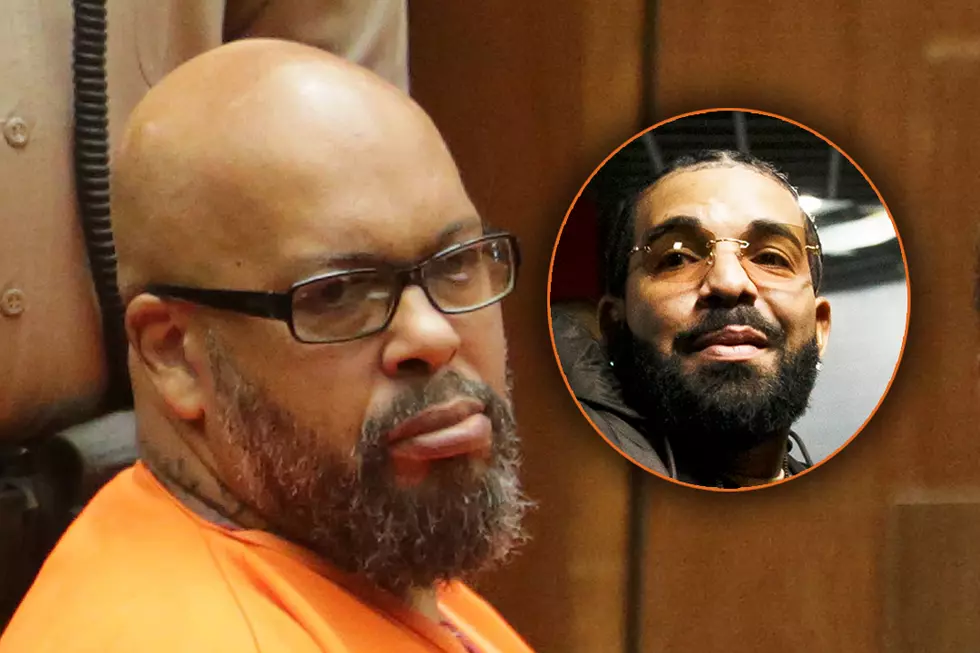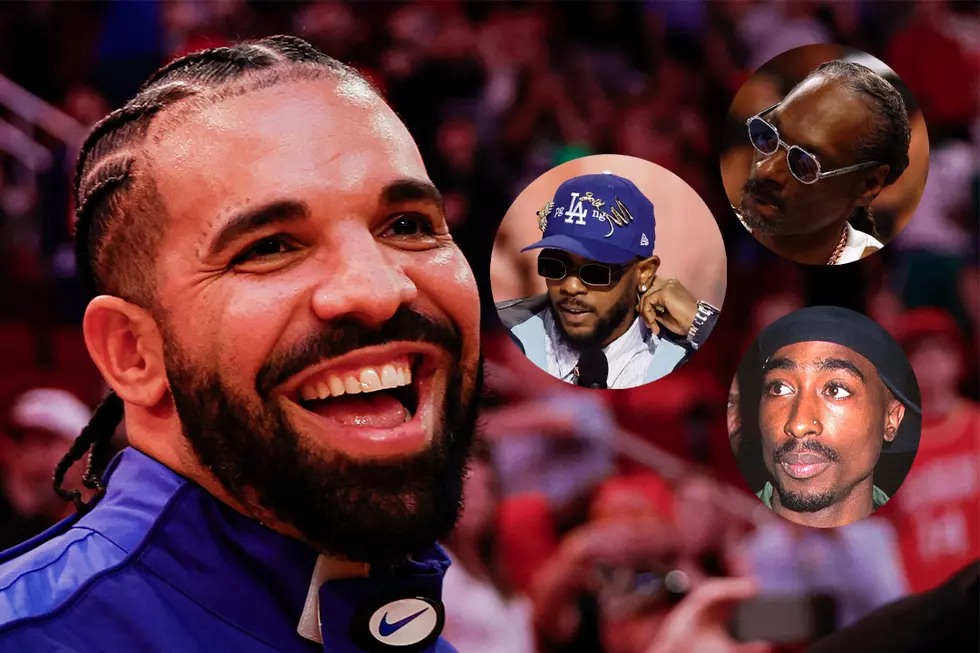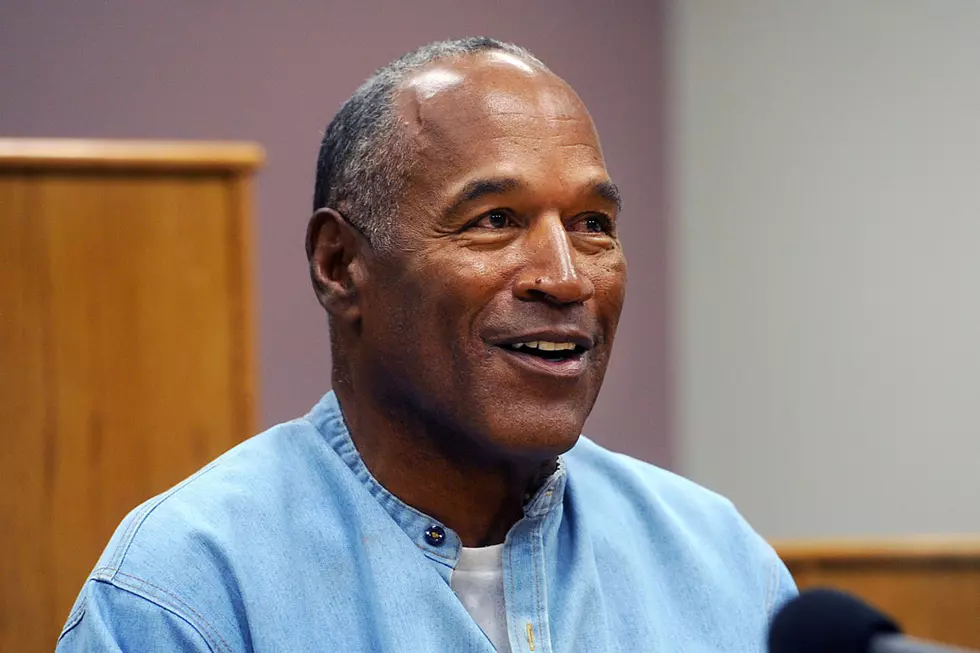![Pit Of Snakes: Tupac’s Quad Studios Shooting [Feature From Sept. 2011 Issue]](http://townsquare.media/site/812/files/2011/08/tupac-image1.jpg?w=980&q=75)
Pit Of Snakes: Tupac’s Quad Studios Shooting [Feature From Sept. 2011 Issue]
Pit Of Snakes
Dexter Isaac says Jimmy Henchman paid him to rob Tupac in Quad Studios in 1994. Are we any closer to knowing the truth?
Words Jason Rodriguez
Editor’s Note: This story originally appeared in the September 2011 issue of XXL Magazine.
On June 15 of this year, the day before what would have been Tupac Shakur’s 40th birthday, an imprisoned murderer named Dexter Isaac delivered a confession that sent shock waves through the hip-hop community. Isaac, a former associate of the notorious manager and label exec Jimmy “Henchman” Rosemond, sent a note from Brooklyn’s Metropolitan Detention Center to the website allhiphop.com stating that he was one of the men who robbed and shot Tupac at Manhattan’s Quad Studios on November 30, 1994, and that he had done so at the behest of Henchman. This unsolved incident is largely credited with inciting the East Coast/West Coast feud that preceded the murders of ’Pac and his counterpart The Notorious B.I.G.
“In 1994, James Rosemond hired me to rob 2Pac Shakur at the Quad Studio,” Isaac wrote. “He gave me $2,500, plus all the jewelry I took, except for one ring, which he took for himself.”
Henchman, through his attorney, Jeffrey Lichtman, has denied the allegation. In a May interview with Allhiphop, he alleged that Isaac had cooperated with police while behind bars and that he was not a trustworthy source. In his confession letter, Isaac claimed that it was Henchman who was the snitch.
Henchman, 46, has managed artists like Groove Theory, Game and Gucci Mane. But he has a criminal record that includes convictions for assault and weapons charges, and he’s been accused of masterminding the 1994 robbery before—by ’Pac himself, in the lyrics to the 1996 song “Against All Odds,” and by former Los Angeles Times writer Chuck Phillips, in a 2008 article. On June 21, less than a week after Isaac’s revelation, federal agents arrested Henchman on drug-trafficking charges. He’d been on the run for a month.
In 1994, however, Henchman was a free man, working his way up the music industry. Living in Brooklyn, he was managing Little Shawn, a young rapper signed to Andre Harrell’s Uptown Records, and met Tupac through his cohort, another notorious figure, Jacques “Haitian Jack” Agnant. Tupac was in New York filming Above the Rim, in which he portrayed a gangster named Birdie—a character many believed he modeled after Agnant, with whom he’d developed a fast friendship.
According to Bill Courtney, a retired NYPD officer who worked with the infamous “hip-hop task force,” Agnant and Henchman were known in the music industry for robbery and extortion. (A treatment for a movie based on Agnant’s criminal exploits, attributed to Courtney, has been floating around the Internet. He says it’s fictitious and that he didn’t write it.) Courtney says there’s no way of knowing for sure whether Henchman ever turned state’s witness, but like Isaac, he cites a 1997 gun arrest in North Carolina that he thought would have put Henchman away for years. “But,” Courtney says, “he ended up walking, you know?”
Agnant introduced ’Pac to Henchman and another Brooklyn heavy, Walter “King Tut” Johnson. In his time in New York, though, ’Pac had also been spending a lot of time with his friend Biggie Smalls, his Junior M.A.F.I.A crew and Sean “Puffy” Combs’s Bad Boy Entertainment. Biggie warned him about the new company he was keeping—a warning ’Pac shrugged off.
Tupac’s friendship with Agnant came to an abrupt end after the two men were arrested and charged with sexually assaulting 19-year-old Ayanna Jackson in a Manhattan hotel room in November 1993. The cases were tried separately, and in November 1994, ’Pac spoke about Agnant to the Daily News’ A.J. Benza, and not in flattering terms. Courtney believes the incident at Quad Studios came as punishment. “A message was being sent to him not to name-drop,” he says.
Henchman said the same himself. In a 2005 interview with Vibe magazine, he recalled a conversation he had had with ’Pac. “Nobody came to rob you,” Henchman said he told the rapper. “They came to discipline you. That’s what happened.”
Before he got to Quad Studios, in Times Square, ’Pac was Uptown, recording a track for mixtape DJ Ron G’s latest effort. Ron, in recalling that night, says ’Pac, whom he was meeting for the first time at the session, seemed perturbed by a series of pages he was receiving. “He kept getting phone calls, pages,” Ron remembers. “It kept throwing him off, here and there.” But ’Pac finished his rhyme, which would later resurface as “Deadly Combination,” featuring Big L. “Follow me,” the lyrics begin. “Tell me if you feel me/I think niggas is trying to kill me.”
Unbeknownst to Ron G, the pages were coming from Henchman, who was recruiting ’Pac to rhyme on a song Little Shawn was recording at Quad that night with Uptown’s in-house production team, the Trackmasters. As ’Pac explained to Vibe magazine’s Kevin Powell in 1995, Henchman (who was referred to as “Booker” in the article) was to pay him $7,000 for the guest verse. ’Pac needed the money because his shows were getting cancelled because of the rape trial, and his record royalties were going toward lawyer fees. “He felt uncomfortable before he left,” Ron G says, but he went to Quad anyway, accompanied by his frequent collaborator Randy “Stretch” Walker and two other friends. Upon entering the building, ’Pac spotted Junior M.A.F.I.A’s Lil’ Cease waving from a balcony at the studio. Cease yelled down that Big was upstairs. This settled his nerves, ’Pac said.
Before he made it to the elevator, though, ’Pac also saw three men who, suspiciously, he thought, didn’t look up at him. One was reading a newspaper; two were dressed in military fatigues, a sign he took to mean they were from Brooklyn. Biggie’s security, he guessed. As he pressed for the elevator, the two men in fatigues—one of whom, if his confession is to be believed, was Dexter Isaac—came up from behind with guns drawn, told everyone to lie down and demanded that ’Pac turn over his jewelry. ’Pac told Vibe that he was surprised when the men didn’t go after Walker, who was physically the largest man in his party. (It’s widely assumed that ’Pac was referring to Walker on 1996’s “Ambitionz Az a Ridah” when he rhymed about being set up: “Had bitch-ass niggas on my team/So, indeed, they wet me up.” In 1995, a year to the day after the robbery, Walker was shot and killed in Queens.)
’Pac refused to comply with the orders, and shooting began. Five bullets hit him, and he was beaten and stomped once he was on the floor. After his assailants had relieved him of his jewelry and fled, though, he rose to his feet and got into the elevator. Bleeding and dazed, he arrived up at the studio, where he discovered a large group of men, including Biggie, Puffy, Shawn and Henchman. They seemed stunned to see him, he told Vibe, which made him think that they’d expected him to die. He asked someone to roll him a blunt and called his girlfriend and asked that she call his mother to tell her about the attack.
Police soon arrived. Contrary to reports, Courtney says, the officers were not the same ones who’d arrested ’Pac after Jackson’s rape. ’Pac was taken to Bellevue Hospital, where his wounds were determined not to be life-threatening. Fearing for his life, because the Fruit of Islam guards assigned to watch him were not carrying weapons, he checked himself out of the hospital and went to recuperate in the apartment of his old friend, actress Jasmine Guy.
“There was something romantic about [his] stories,” says Courtney, who called the rapper “conflicted” and “paranoid.” “It makes him look like a dramatic hero.”
Days later, still heavily bandaged, ’Pac rolled into a Manhattan courtroom, in a wheelchair, to hear the verdict in his sexual-assault case. He was acquitted on multiple sodomy charges but was found guilty on several counts of sexual abuse. In February 1995, he received a sentence of 18 months to four and a half years in prison. Agnant was able to plead down to two misdemeanor charges and avoided jail time.
Tupac was sent to Clinton Correctional Facility, in Dannemora, New York, where he did not receive many visitors. Death Row Records owner Suge Knight, though, and lawyer David Kenner made repeated trips there. They would eventually post $1.4 million bail for ’Pac and sign him to Death Row Records.
Free and energized, and with the backing of the hugely successful and notorious Death Row, ’Pac became a man possessed with revenge. At first, publicly at least, he took aim at the Bad Boy camp—he’d taken umbrage with Biggie’s 1995 record “Who Shot Ya”—but not at Henchman or Agnant. (Courtney says the two men are no longer close. They were reportedly involved in a shoot-out against each other in Miami a few years ago. “I think Jimmy and Jack are too much alike, you know?” Courtney says. “There can only be one big dog in a crew. That’s why they split up. And for a while now, it’s been adversarial.”) The Los Angeles Times would retract Chuck Phillips’s 2008 story, which accused Henchman, along with Biggie and Puff, of conspiring to shoot ’Pac—after it was discovered that a prison-inmate source had falsified documents to implicate Henchman.
Still, in the eyes of many rap fans, ’Pac has already had the last word. On the ominous “Against All Odds,” the final song on his posthumously released last album, The Don Killuminati: The 7 Day Theory, he delivered a last-will-and-testament type of overture: “Promise the payback, Jimmy Henchman, in due time/I know you bitch niggas is listenin’, the world is mine/Set me up, wet me up, niggas stuck me up/Heard the guns bust, but you tricks never shut me up.”
**PICK UP THE SEPTEMBER 2011 ISSUE OF XXL, ON STANDS NOW**
More From XXL









